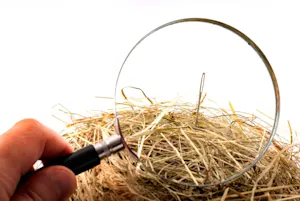What Makes This Word Tick
"Deride" is a lively word that's all about giving someone or something a bit of a hard time, usually with an intention to mock or make fun. It's derived from the Latin word "deridere," which means "to laugh at." When you "deride" someone, it's not just a quick tease; it's mocking with a little extra bite.
If Deride Were a Person…
If "deride" were strolling down the street, it would probably be the person wearing a snappy outfit with a quick wit. They'd be the one at the party with a knack for clever put-downs, maybe not everyone's favorite, but definitely memorable.
How This Word Has Changed Over Time
Interestingly, "deride" has maintained a fairly consistent meaning over the years. Its core of ridicule and mockery hasn't wavered much from its Latin roots, standing the test of time much like a classic joke that keeps getting laughs.
Old Sayings and Proverbs That Use Deride
While "deride" doesn't commonly appear in old proverbs, the idea of ridicule is captured in sayings like "He who laughs last laughs best." It captures the spirit of turning mockery on its head and shows that a clever comeback is always in style.
Surprising Facts About Deride
A quirky tidbit about "deride" is how it conveys both dislike and humor simultaneously. It often walks the line between mean-spirited and playful, showing the power and sharp edge words can hold.
Out and About With This Word
In everyday chatter, “deride” might not pop up as much outside of a more literary or formal setting. However, its cousins like "mock," "tease," or "jeer" are frequently at hand when folks are having a playful go at each other.
Pop Culture Moments Where Deride Was Used
In pop culture, characters who do the teasing, like sharp-tongued talk show hosts or cheeky sitcom personas, often reflect the essence of "deride." You might not hear the word much, but its spirit is alive and well on TV screens.
The Word in Literature
"Deride" fits perfectly in the works of satirists—you could easily find it woven into the pointed barbs of Jonathan Swift or within the cutting dialogue of Oscar Wilde. It’s a word that adds flavor to descriptions of disdainful gazes and sarcastic remarks.
Moments in History with Deride
Think of times when wit and verbal sparring were prized, like debates in the Roman Senate or at a lively British Parliament session. Even if the word "deride" wasn't used, the sentiment was certainly there in historical moments of sharp debate and discourse.
This Word Around the World
Globally, languages have their local versions of friendly teasing or not-so-friendly mockery. In French, you might "se moquer," or in German, "verspotten.” These capture the international flair of what "deride" is all about: a universal pastime of poking a little fun.
Where Does It Come From?
The lineage of "deride" traces back to Latin, specifically "deridere"—a mash-up of "de" (down) and "ridere" (to laugh). Its journey from ancient Roman times to modern usage showcases the timelessness of a good laugh at someone's expense.
How People Misuse This Word
Sometimes folks might confuse "deride" with simple teasing or jesting. However, "deride" carries a sharper, more disdainful edge, suggesting a more serious degree of ridicule than a gentle ribbing.
Words It’s Often Confused With
Mock: Might suggest a similar idea, but "deride" is typically more disdainful.
Ridicule: Like "deride," it involves making fun of, but sometimes doesn't carry the same biting tone.
Jeer: Implies loud and public mockery, while "deride" can be quieter but no less potent.
Additional Synonyms and Antonyms
Synonyms for "deride" could include "mock," "scoff," or "belittle," while its antonyms might be words like "praise," "commend," or "applaud." It’s fascinating how the spectrum of words can swing from harsh to kind.
Want to Try It Out in a Sentence?
Here’s a challenge: "Despite her efforts, her peers continued to deride her suggestions during the meeting, leaving her feeling both frustrated and determined to prove them wrong." Play around and see how you might fit it into your daily vocabulary!
















